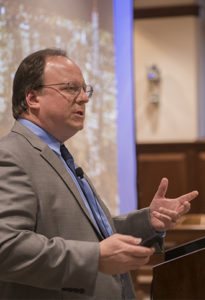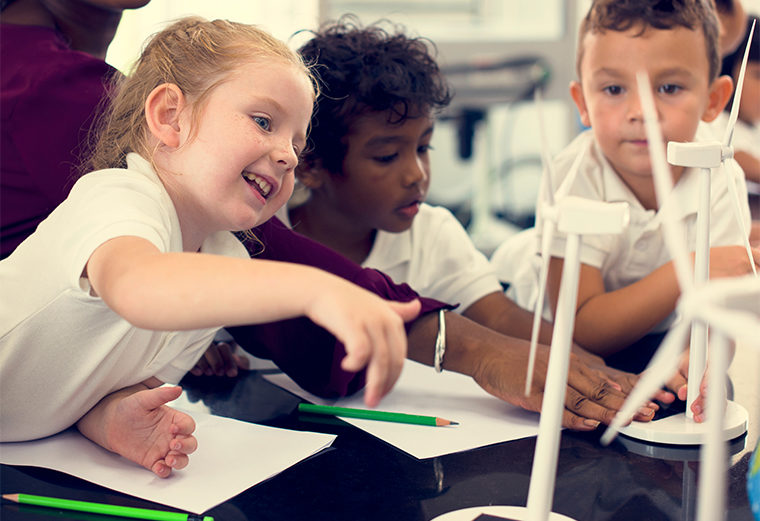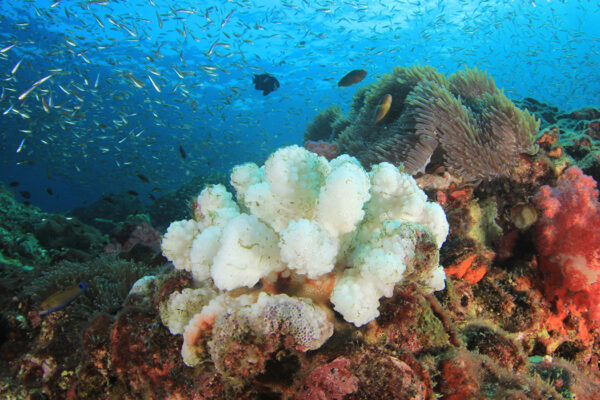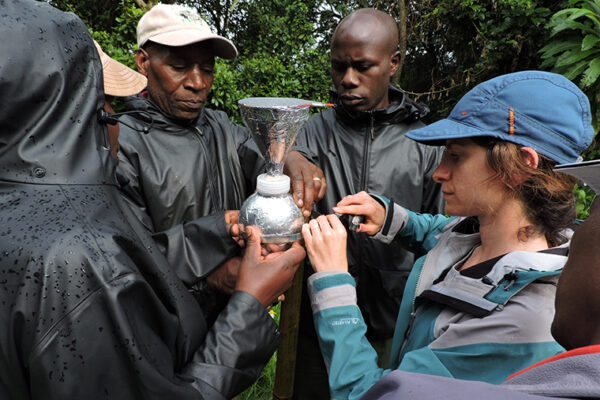The National Climate Assessment, released the day after Thanksgiving, offers motivation and opportunity to bring climate topics into the classroom at every grade level.
Even the youngest students are ready to learn about climate science, according to Michael Wysession, professor of Earth and Planetary Sciences in Arts & Sciences at Washington University in St. Louis and executive director of the Teaching Center.
Wysession, who has co-authored more than 30 textbooks, helped write a position statement on teaching climate science adopted by the board of directors of the National Science Teachers Association (NSTA) in September 2018. The NSTA has a membership of more than 50,000 teachers and other educators at the K-12 grade levels.
It is extremely important to teach children about the science of climate and climate change, and the roles humans play in affecting them, the NSTA statement said.

Science education at the K-12 grade levels is undergoing a revolution, according to Wysession, with most states shifting to a new way of teaching based upon the National Academy of Sciences’ Framework for K–12 Science Education and the ensuing Next Generation Science Standards. The framework identifies a small number of “Big Ideas” for the science standards to focus on, and one of these is global climate change.
“The Next Generation Science Standards emphasize children devising solutions to the challenges of global warming,” Wysession said. “But it will take study and understanding, and we need to do everything we can now to make sure that our students have the tools, interest and motivation they need to meet these challenges.”
Students in early grades can think about the steps they can take to help take care of the earth such as recycling, re-using materials and limiting waste, Wysession suggested.
Students in higher grades should learn about the science behind the greenhouse effect and how both natural factors and human activities change the climate. Students should also be critically analyzing the scientific validity of sources used in political debates about the causes of climate change, he said.
“As the recent National Climate Assessment report shows, the severe impacts of climate change are already affecting humans through severe weather events, decreases in agricultural production, damages to the national economy and destruction of the biosphere,” Wysession said.
“The report also points out that these impacts will be greatest for our children and their children — emphasizing the extreme importance of educating students about the ways that they can design solutions for the future challenges of climate change,” he said.



